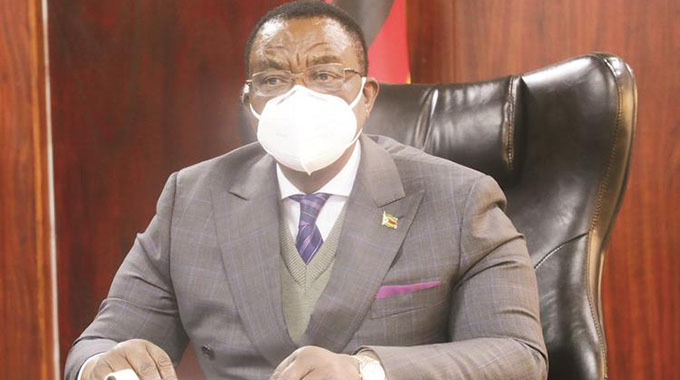‘Great Limpopo TFCA must benefit communities’

Herald Reporter
Zimbabwe, Mozambique and South Africa, partnering in the Great Limpopo Transfrontier Conservation Areas (TFCA) must invest in communities, Environment, Climate, Tourism and Hospitality Industry Minister Mangaliso Ndlovu has said.
He was concerned that the communities living around the parks were not fully benefiting from the Great Limpopo TFCA, despite it having been established two decades ago.
Minister Ndlovu was speaking at the Great Limpopo TFCA 20th commemorations held in Mozambique on Friday, where he was represented by his deputy, Barbra Rwodzi.
Zimbabwe, Mozambique and South Africa signed the Great Limpopo TFCA Treaty on December 9, 2002 to enable management of the huge area as an integrated unit across the three international borders.
Minister Ndlovu said communities were still poor and human lives had been lost due to the growing wildlife population.
“While we are celebrating this journey of two decades since the birth of Great Limpopo TFCA, it is important also to reflect on the challenges that we are facing,” he said.
“Our communities are yet to benefit from the TFCA initiatives although we are 20 years down the road. Our communities are still living in poverty while our wildlife populations are ballooning. We are losing more human lives than ever before through human wildlife conflicts.
“The governments of the three Great Limpopo TFCA partner states, hear this clarion call. Our good conservation efforts have brought us this far. But what are we benefiting from our efforts at the end of the day? Who is going to enjoy these wildlife resources that we are sweating to conserve? Let us start to think and act so that we enjoy the fruits of our sweat.”
On the successes, Minister Ndlovu applauded the great strides made towards institutional reforms implemented within Great Limpopo since its inception.
“It is a fact that the area where our beloved Great Limpopo TFCA is found today suffered de-colonisation process and liberation struggles that raged in Mozambique, Rhodesia (Zimbabwe) and South Africa,” he said.
“The area of the TFCA was central to these conflicts and the legacy of war remains evident today with minefields and old battlefield sites still visible, especially between Zimbabwe and Mozambique.
“These landmines made it impossible for either wildlife and tourists to move freely from one country to another within the Great Limpopo TFCA landscape. With the TFCA initiative’s emphasis being on free and seamless movement of tourists and wildlife within the landscape, today we can boldly say, strides have been made in the demining exercise along our borders.
“Besides pulling down fences and demining along the borders, we are proud today to talk of improved land access within the landscape with the Giriyondo Access Facility opened in 2006, allowing visitors to the Great Limpopo Transfrontier Conservation Area cross-border access within the perimeters of the park for the first time.”
Presently, a complementary facility is being pursued between Zimbabwe and South Africa, and Minister Ndlovu said he hopes that before year end, the development would have been completed.
“We are proud to point to institutional reforms implemented within the Great Limpopo TFCA as one of the many strides made so far since the inception of the Great Limpopo TFCA,” he said.
“With the Great Limpopo TFCA initiative progressing from the implementation of the core areas, the Great Limpopo Transfrontier Park, to the development and implementation of the broader conservation area, as per the Treaty, the Great Limpopo TFCA had developed a wide range of joint plans, policies and frameworks that support its effective implementation of different programmes and initiatives.”
Minister Ndlovu said there were plans to put up infrastructure to reintroduce and manage the rhino population.
Recently, rhino re-introductions into the Great Limpopo TFCA landscape have been prioritised.
In Gonarezhou National Park, rhinos were re-introduced in 2021, while a similar project has been embarked on in Mozambique.







Comments